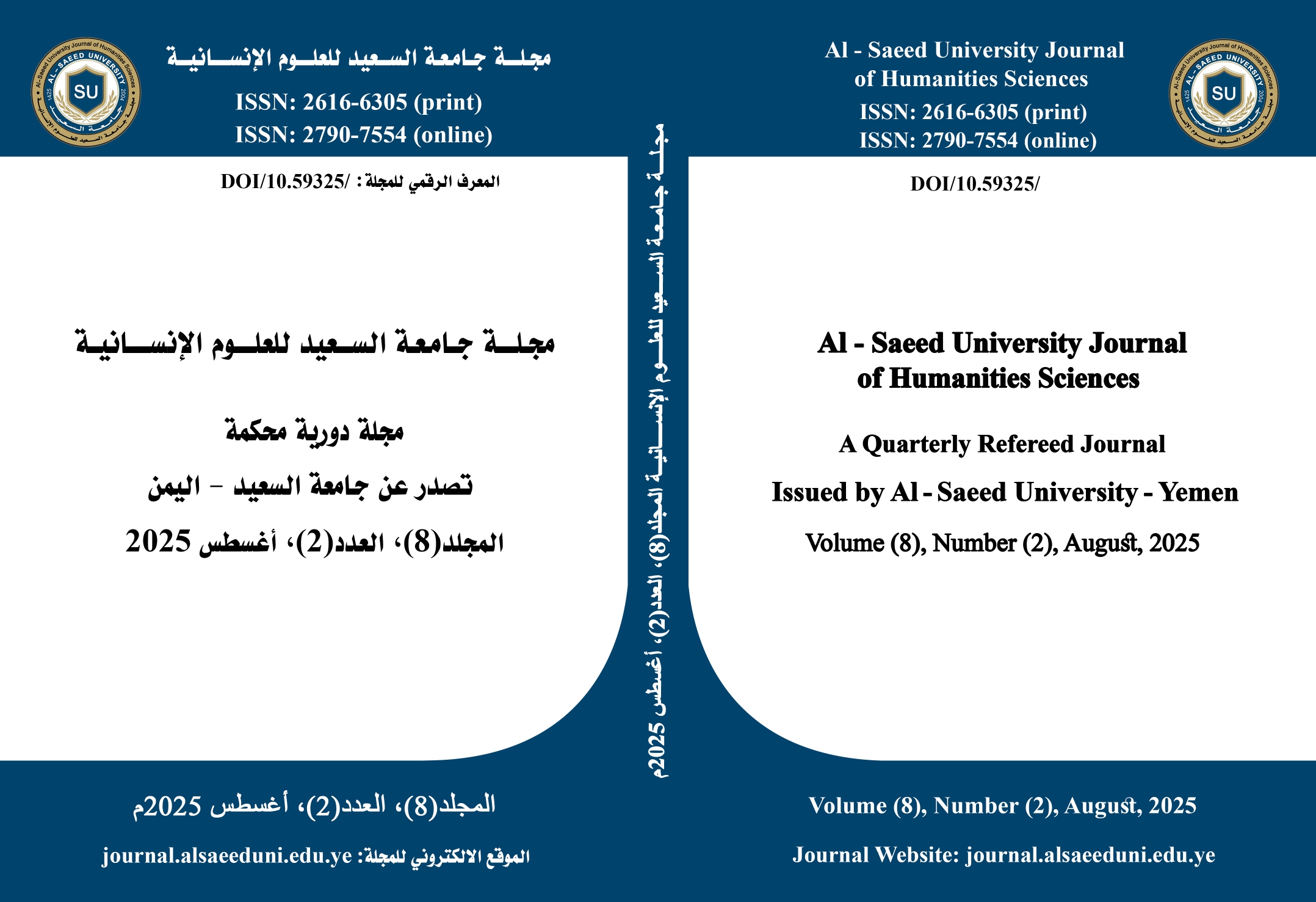The Use of Artificial Intelligence Applications in Management from the Perspective of Administrative Leaders A Field Study on Administrative Leaders in State Institutions in Aden Governorate
DOI:
https://doi.org/10.59325/sjhas.v8i2.275Keywords:
Artificial Intelligence, Administrative Leadership, public MinistriesAbstract
This study aimed to examine the impact of artificial intelligence (AI) on the performance of administrative leadership in the surveyed organizations. To achieve this objective, the researcher adopted a descriptive-analytical approach due to its suitability for the nature of the study.
The study population and sample consisted of administrative leaders from the Ministry of Education, the Ministry of Social Affairs and Labor, and the Ministry of Health. The researcher distributed (44) questionnaires to a random sample of administrative leaders across these government ministries. The questionnaire was selected as the appropriate research instrument for field data collection based on the study objectives and variables.
Key Findings:
- Weak utilization of AI applications in the administrative environments of the study sample
- Deficiencies in awareness and training programs related to AI technologies
- Inadequate technical and analytical infrastructure, including:
- Absence of intelligent decision support systems.
- Lack of integration between AI tools and institutional information systems.
- Weak organizational and individual awareness of AI's role in:
- Improving decision quality.
- Enhancing operational efficiency.
- Shortcomings in applying effective administrative leadership principles, particularly in:
- Strategic planning.
- Employee motivation.
- Performance monitoring These limitations reduce the potential benefits from AI technologies.
Downloads
Published
How to Cite
Issue
Section
License
Copyright (c) 2025 رستم شريف أحمد صلاح

This work is licensed under a Creative Commons Attribution 4.0 International License.
copyright is retained by the authors. Articles are licensed under an open access Creative Commons CC BY 4.0 license, meaning that anyone may download and read the paper for free. In addition, the article may be reused and quoted provided that the original published version is cited. These conditions allow for maximum use and exposure of the work.



